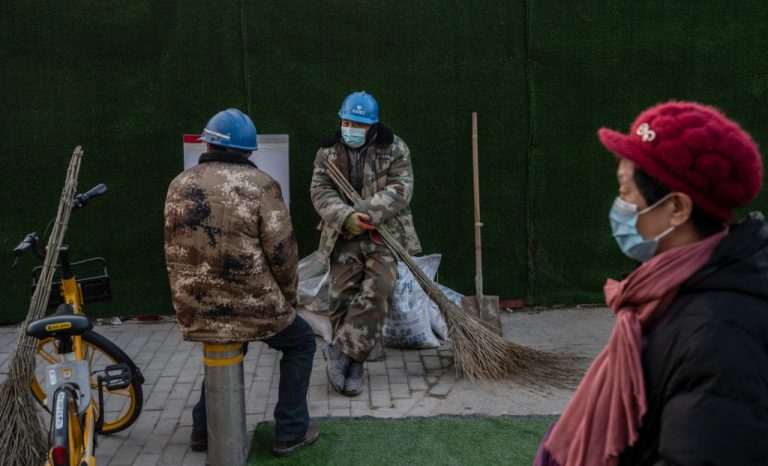For the past few decades, China has been one of the fastest-growing economies in the world. Even after COVID-19 broke out, according to China’s own data, the country recorded some economic growth in 2020.
But the communist regime has continued to tighten its lockdown policies to control COVID-19. Some experts have now raised concerns about the country’s growth potential.
In a recent report, economists at Nomura warned that lockdowns in China are causing disruptions to the economy. Since the country is a major global manufacturing hub, any disruption in its supply chain will affect production facilities across the world that depend on Chinese components.
The latest focus of Beijing’s COVID-19 lockdown policies is Xi’an, a city of 13 million people. It’s an important hub that produces auto parts and processors for smartphones, for example. In an interview with AP News, Shelly Jang of Fitch Ratings stated that if the lockdown in Xi’an extends, it could “negatively affect” NAND flash supply and worsen supply uncertainties.
“Samsung Electronics and Micron Technologies Ltd. say their factories in Xi’an are affected but they are trying to minimize disruptions by drawing on global production networks. Micron said some deliveries might be delayed… Those factories make DRAM and NAND memory chips used in smartphones, personal computers, and services… Xi’an accounts for 42% of Samsung’s NAND production and 15% of global supply… Samsung makes about one-third of such chips,” according to the media outlet.
Success
You are now signed up for our newsletter
Success
Check your email to complete sign up
Eurasia Group, an American consultancy firm, sees Beijing’s strict adherence to a zero-COVID policy as a top political risk for the year, potentially causing problems for other nations. The group predicts Xi Jinping’s policies to fail against the new Omicron variant, which will lead to bigger outbreaks, wider and tighter lockdowns, greater economic disruptions, and even more state intervention. This will also cause significant disruptions to the global supply chain.
“China is in the most difficult situation because of a zero-COVID policy that looked incredibly successful in 2020, but now has become a fight against a much more transmissible variant with broader lockdowns and vaccines with limited effectiveness,” Eurasia Group president Ian Bremmer and Chairman Cliff Kupchan stated. Xi’s “personal attachment” to the zero-COVID policy and its initial success will make it “impossible to change course,” they warned.
The spread of Omicron and the crisis in the property sector will suppress the Chinese economy this year. The World Bank recently cut down its growth predictions for China in 2022, reducing it from 5.4 to 5.1 percent. If China only grows at 5.1 percent, it will be its second-slowest growth rate since 1990. The country only grew 2.2 percent in 2020.
The World Bank points out that China’s typical way of boosting the economy through real estate and infrastructure growth has “run its course.” In order to grow better in the medium-term, Beijing has to “rebalance its economy.” It must permit the private sector to have a bigger role and turn society into services and consumption-based economy.
“Addressing distortions in factor markets and further opening up of the protected services sector would not only support the shift to more private sector-led growth but also encourage rebalancing towards higher value services jobs,” Ibrahim Chowdhury, the World Bank’s lead economist for China, said in a statement.
Some experts predict China’s Q4 2021 GDP growth rate to be at just 3 percent. China’s Q3 growth was registered at 4.9 percent.














